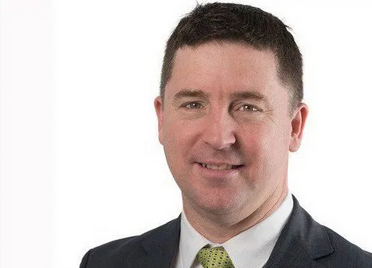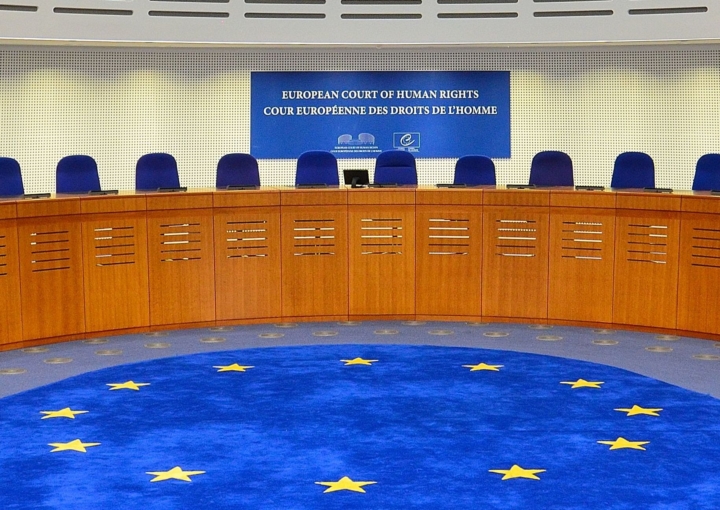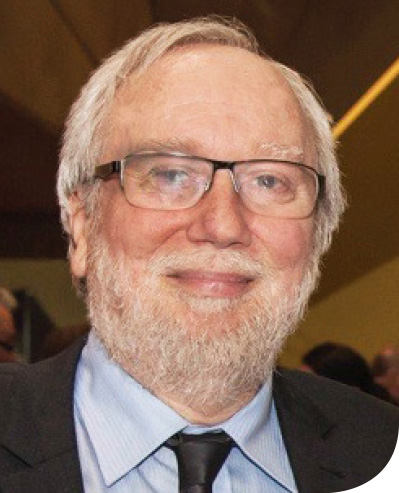The Future of Freedom for Christian Faith in our Schools
‘The future of freedom for Christian faith in our schools’
Transcript of Michael Kellahan’s address at the CRU Teachers’ Day – May 2018
Well today, I’m not sure if you’re aware, but the long-awaited report from Philip Ruddock goes to the Prime Minister to say what kind of legal protection there should be for religious freedom, and around the country journalists are trying to get their hands on a leaked copy… my phone has been going crazy saying ‘what’s in it? what’s in it? what’s in it? what’s going to happen?’ Everyone’s speculating. Thousands and thousands of submissions have gone in. Too many lawyers and politicians and many commentators have spoken about it. Lots of different things. We put a submission in – a good hundred pages or so – with endorsements from everyone from Hillsong to Sydney Anglicans to the Zoroastrians. Everyone was kind of saying
‘we love what these guys are doing’ so it’s got broad endorsements, really deep.
I don’t want to talk about it at all today. I really think the worst thing I could do would be to spend the next 30 minutes talking to you about what may or may not be coming out of Ruddock, so if you’ve got questions on that, that’s fine. Save them for question time, or lunch. Instead I thought what would be more interesting would be to tell you the true story of a young woman named Lucy.
Lucy’s a Sydney student, the second year into a combined communications and law degree, and the reason I bring her up is she actually came to faith through the ministry of CRU and through the local church & the youth group and is now in the middle of the university setting. She is one of those young women who is just, you know, that whip-smart confident, great with people, people love being around her kind of a person, a friend to many, a leader of leaders and a Christian who’s really grown in the faith and has deep convictions.
But our story with Lucy really starts before university and to that time with CRU, because that was foundational for her to be meeting with others, to be learning to pray, to be spending time in the word and to have a love for people who didn’t yet know Jesus.
Life seemed to come easily to her you know, because of her whip smartness, because of who she is and it was an easy decision for the head of the faith-based, sandstone school, and I’m not telling you which, that she was at to make her a captain and she was a great kind of, you know, pinup for the school, as here is someone we’re anointing as the kind of leader of leaders, this is what the future should look like.
And so to 2017. At Sydney University in the middle of the marriage campaign, a bitter campaign that splits the whole country. Sydney Uni is not exempt and she’s not sure what to make of it. On campus she’s got friends who are in the Catholic group who set up a stall one day, 25 or so are there with free food and offer to talk to people about why they would say no and how they should think about this. And there’s a counter protest that comes up. Lucy didn’t know either that the protest was on, or that a counter protest was planned. But she was walking through with her friend Joshua and together they saw this thing, this huge melee that was breaking out. I don’t know if you remember, it did make the media at the time, that cameras were there, people were throwing glitter and hummus, strangely – I don’t know, you come prepared for a counter protest, you bring your hummus … vegan protest – and it captured it all and it was it was really ugly. And one of the one of the counter protesters there was saying ‘I wish I could kick your … head in’, you know, as they grab and try to provoke the Catholic students there into a response. Megaphones were turned up to silence dissenting voices, the chanting is relentless. ‘Homophobes off-campus! Homophobes off-campus!’ – this was a view that was just not to be spoken and you know in some ways it was just another day in what was a bruising kind of campaign and student politics … what do you expect.
But for Lucy it was a really really tough moment because she was really seeing upfront hate against people of faith for their faith and for speaking their faith and for doing it in a public kind of way.
Now she had always had people think that she was a bit weird for her beliefs and she got that. She knew that and she knew that she would get a ribbing, but she could handle that. This felt different. But the following day she’s with Joshua again. Joshua is not a Christian. Joshua is no friend of those Catholic students but he thought that they should be able to have a voice. He felt that they were wrong but he thought they should be able to speak. And he was literally saying to Lucy ‘Look you know I feel like I should apologize for what happened and I actually went out afterwards and spoke to some of those guys and said you shouldn’t be doing this’, and as he’s explaining this to her, it’s the words coming out of his mouth, he then the following day is confronted by some of these same protesters who are right up in his face saying again to him ‘Homophobes off campus! Bigot be gone! Bigot be gone!’
Now he actually supported their cause, he was all for the yes case, but the fact that he would stand up for the freedom of others to hold a different position and to be able to speak that, meant that he was no longer welcome on campus. And Lucy is just watching this happen and Joshua leaves, he just thinks it’s safer, it’s going to defuse it. He doesn’t make it to that shoot.
Now what does Lucy do in that situation? She hasn’t outed herself in terms of her own beliefs and where she stands. What does she do? How did it come to this, that she’s in this moment where she’s needing to decide that?
Well today, all I want to do is think ‘how would you prepare Lucy for that moment?’ What would that look like? What would you want to say to Lucy? she’s part of your CRU group. How would you have prepared her?
Well, the first thing to say is the problem is perhaps deeper than you might think. This is not just something that’s only going come up at Sydney Uni. It’s not something that’s just going to come up around marriage. It’s not something that’s been fixed by the changes to the marriage law. It’s not something that’s even restricted to the differences there are over marriage and sexuality. It’s deeper than that. The problem is that culturally we’re losing our ability to disagree well. That’s not just an issue for Christians, that’s an issue for our culture, and Freedom for Faith exists for one reason – that is we’re here to see freedom protected and promoted for all people, whatever their beliefs, from Anglicans to Zoroastrians. We are not here to protect the church and to argue that the church should be protected, but instead we’re arguing that freedom itself should be the freedom to have a belief, to hold it, to speak it and to live it out publicly. And for that to be true for all people. And we think that’s a critical need at this kind of moment, not just for the Lucy’s of the world but also for the Joshua’s.
Think of Joshua who’s there agreeing on marriage but disagreeing when it came to free speech. What is he being asked to do? He’s seeing you’ve got to endorse this position and insist that others endorse it as well, even against their conscience, even against their deeply held religious beliefs. Diversity of belief has to be killed in the name of conformity. Now that’s not a new kind of problem for a culture. We’ve been here before. The patron saint of that kind of thinking comes out of the French Revolution and Jean-Jacques Rousseau who says ‘you cannot leave at peace with those that you regard as damned’. You can’t live at peace with those you regard as damned. If you think that someone is damned for their view, then there’s no way for you to have peace with them. It’s the kind of thinking that leads to tribalism, to intolerance, to blood on the streets.
I don’t want to be dramatic in saying it but historically that’s true. We need to find ways to do difference, otherwise we will fall for a culture which is all about virtue signalling, public shaming, and the exclusion of voices that would be different from the majority position on anything. And it will generate a push to see people with different views and particularly people of faith excluded from the public square. We see that politically all the time. So with euthanasia debates taking place around the country, Andrew Denton has publicly from the National Press Club, addressed down, said again and again and again, Catholic MPs should be abstaining from this debate because of their beliefs. Because of their beliefs they lose the right to bring that position into the public square. It’s okay to have beliefs like his that you bring into the public square, but you can’t have other kind of beliefs.
We see it in the calls for Israel Folau to be sacked because he takes a different position on Instagram than the corporate supporters of the Wallabies – the kind of thinking again which is all about conformity. Now don’t hear me saying this is some evil conspiracy plot that’s going on. Most of the people who think this, think this is a good thing that’s being done in the name of justice and equality and love and it’s a righteous kind of ‘excluding of voices which are awful’. The motivation which is there is one that says these evil things need to be stopped in order for good to result and again students of history have got to be aware of the great evil that can be done by people who are so confident in their own righteousness and want to shut down dissenting voices, because one of the first things they do is stick to the law to use it not as an instrument for justice but as an instrument of compliance. A revolution can be wrought in the name of that kind of conformity.
Lucy can find herself right in the middle of it. What’s it going to look like if she’s seen to be part of a church which is evil, a place of hate and impediment to justice? The university here and the opinions which are being expressed there, it’s not an aberration, it’s not an outlier, it’s a picture of the future, it’s a sign of the future. The students who demand that conformity and insist on it by exclusion will be the grads who turn into the political staffers and the MPs in the future, or the people sitting on the corporate boards or the school councils – the ones who set the policy, who shape the agenda, who says ‘this is what we should be doing’. The university is just upstream of the corporations, corporations are upstream of the law, but the really interesting thing for today is, as we think about it, everyone in this room is upstream at the University and the Lucy’s who are still in proof, they’re heading towards that situation now. They’re in it at the moment of course. There’s those kind of pressures already happening within schools but your ability to shape and lead people into thinking through these kind of issues is just so strategically significant. It’s far more significant than what happens in 10 years as those students kind of come through and are themselves entering into corporations and law and politics and the rest. The action is now in terms of the shaping of hearts and minds.
But there’s got to be a word to Lucy that this is a bigger issue than you may fear, and more significant, and your future is actually going to probably look different because of it. Have you thought that for the students that you’re dealing with now, that those who are thinking about breezily kind of going into a career as a counsellor or social worker, it just may not be open to them to do it in quite the same way that it’s been done in the past – for Christians to speak publicly of their faith and to do it in those kind of professions where we are seeing in other jurisdictions that there’s a lot of pressure on them, that that’s getting harder and harder to do. Expectations may need to be reset – but that’s okay, because I don’t think there’s ever a promise where Jesus says ‘I’ll give you a glittery shiny kind of career and you’ll be able to work in these kind of advertising firms or this media company or sit on this board.’ It may be that the early signs we’re seeing that some of those doors are closed, will be closed to Lucy.
Now at that point if that’s right, if that’s right, then Lucy must not play the victim card, must not say ‘Woe is me, I’m a Christian, I demand my rights’ – that would be such a wrong move see. If she wants to take a position which says all this kind of ‘victimology’, all this identity politics is part of the problem, then she can’t turn around and say ‘oh, by the way, I’m a victim’.
See, if we want to think about religious freedom and what it costs to follow Jesus, then it’s good to have a healthy sense of perspective about that, and you can do that globally – just sign up to Barnabas Fund, or Open Doors, or something like that, and see the stories about the scale of genocidal persecution that’s happening around the world today.
Well think about it historically, in terms of the experience of Christians through the ages. See we have had remarkable freedoms in this country, remarkable freedoms in the West, for a long time. They’re not to be taken for granted. We are to be thankful for them. We should work to see them preserved. But we should also see that they’re not normal for people of faith and that normal experience is people needing to kind of count the cost in following Jesus and of course that happens here.
I think of a Chinese girl who came to faith, and the day that she was baptized was the day that her family had a mock funeral for her to say ‘you are dead to us because of what you are doing and the way you’re abandoning your ancestor’. So she knew that would happen – she counted the cost, she followed Jesus. There are people that count the cost you know.
But if Lucy fails to get a promotion, if Lucy can’t make it through certain ceilings, then that’s okay, because what’s more important is following Jesus. We do still have remarkable doors open to us that may change. It may be that Crusaders does not have access to schools in the same way in another 10 years. We have good reasons to think that that’s a real risk in terms of what’s happening. But let’s think about what can be done now and how we might prepare for that.
But for Lucy – at Sydney Uni, meet with the other Christians before you get to deregister. Spend time with them, prepare yourself for a lifetime of serving others. But don’t get caught up in protecting yourself or your patch. If we’re serious about freedom it has to be the freedom of others as well. You might want to ask questions about what that actually looks like – and don’t fall for the lie, Lucy, that says if you are just nice (because she isn’t really nice you know) and winsome, that that will be enough. I don’t think nice is actually a word in the Bible. She needs to be gracious kind patient and things like that, but being nice is no real strategy and it won’t be sufficient. It wasn’t sufficient for Joshua, it certainly won’t be for her if she starts opening her mouth. And yet the thing that she must do most of all is open her mouth, is to refuse the temptation to go radio silent in the public space.
Now you can do that in different ways … people can hide away in safe Christian spaces and only say Christian things on a Sunday or on a Wednesday night and things like that, and never speak it elsewhere. Or you can do it deliberately and bigger, the kind of communities that just do that or you can fill up a calendar which means you’re just not out there in the world. But Lucy mustn’t do that, not if she’s to follow Jesus. Not huddling together like that. Because following Jesus has always been a public thing. It’s always been about loving your neighbour. It’s always been about loving the world around, even those that hate you and persecute you and you can’t do that with your mouth shut.
Now you know, you may need to be wise about how to speak, you may need to talk to others about how to do that but the thing you mustn’t do is be radio silent. That’s the challenge that Peter and John were given in Jerusalem, wasn’t it? – brought before the Sanhedrin, the very ones that had killed Jesus just that short period before, and they’re told ‘speak no longer in this name’, and they said ‘well, there’s no other name under heaven by which men must be safe. Telling us not to speak? Judge for yourselves – is it right to obey you or God? Jesus says we’re to be his witnesses to the ends of the earth – Jerusalem, Judea, Samaria. We’re just in Jerusalem and already you’re telling us to stop’. So right from day one the church has been told ‘just keep your beliefs to yourself, keep it private, back into the upper room, hold those beliefs if you like even though we know they’re wrong, but just don’t make them public’. But as they speak those beliefs, persecution comes. But the world has turned upside down. We stand here today as the heirs, as the legacy of those who spoke in the past.
And so Lucy’s got to speak to her friends. Lucy’s got to count the cost in doing that. And Jesus warns again and again that those who would follow him must count that cost, and he demands it. He demands their first love – love above family, above friends, above Mammon, above acceptance in the Synagogue, acceptance in the community. He comes and divides families over following him, and people will be cast out by others who are convinced they’re doing things for the sake of righteousness and for the sake of God. Jesus knew that all along.
Lucy needs to say it’s worth it to follow Jesus, and as she does it, she needs people around who speak with courage and conviction and who stand up for the rights of others to speak as well. It’s one of the reasons we’ve been so invested in the Ruddock review process.
Australia’s had very little legal protection for religious freedom. We’ve had a wonderful social compact which is just live and let live. We don’t have an American kind of system where the Constitution talks about Liberty as your first right and all that kind of stuff. Liberty in Australia? – it’s a Subaru. It’s not part of our DNA in the same way. We just give people a fair go. But culturally that ‘just giving people a fair go’ is under pressure and as it does it’s appropriate that we think ‘actually, what should the law should look like?’ And so organizations like ours are trying to help. But all we’re doing really is giving colour to the Lucy’s of this world, so that they can step up and speak. There’s no point having the freedom to do Scripture in schools if we don’t have Scripture teachers and yet every church feels that tension with time, don’t they? Every year it’s the ‘how do we find a Scripture teacher?’
So we have remarkable freedoms at the moment and we’re going to, I was about to say fight for those freedoms, I don’t want to use the fighting word. Actually what I want to say is we want people to be great lovers of freedom, to realize that it’s such a precious thing that we shouldn’t take it for granted and to change that conversation around freedom so that people say this matters, not to protect our turf, but so that we can live well together.
That’s a big thing to ask and it’s going to be a bigger thing than whatever it is that Ruddock delivers, and the Parliament responds to over the next year. That’ll make a lot of noise and a lot of news, but the real action and the real experts are the losers of this world, and you as you as you lead them. The thing I always get coming out on occasions like this, is we come and we learn, because you’re on the coalface, you’re where the action is in terms of how freedom’s actually lived out in the country. And so don’t underestimate that. Be praying for your growth and maturity and being able to lead the people that God’s entrusted you to, and for wisdom in a very quickly changing mission field. I remember (this is nostalgia), I remember back in the nineties, going along to the summer schools up in Katoomba, and the missionaries would come back from France and tell us about how on campuses there, they weren’t allowed to bring Bibles out and be public in their faith or to book rooms or to have Bible teaching in a public way, and we were just slack-jawed and thinking ‘wow, this secular world, how would you possibly do that?’ It was so different from our university experience and yet it looks completely plausible that that could be very close to the Australian experience very soon. So we can’t just
keep thinking I will let’s just do ministry like we did in the 90s if the mission field is changing that fast. We’ve got to understand the changing mission field and think what does being faithful into that space look like and to do that you need days like this, you need opportunities to speak with others who are ‘just doing it’ and to share the wisdom in there and use the resources that CRU offers you in networking, to really lead it a different way, with being faithful to that same gospel.
That’s what Lucy needs … those kinds of things. But that’s the start of a conversation with her, isn’t it? The Lucy’s are in your group now, and so the challenge I want to leave you with is the question we started with – how do you prepare them for this brave new world? What does that look like?






